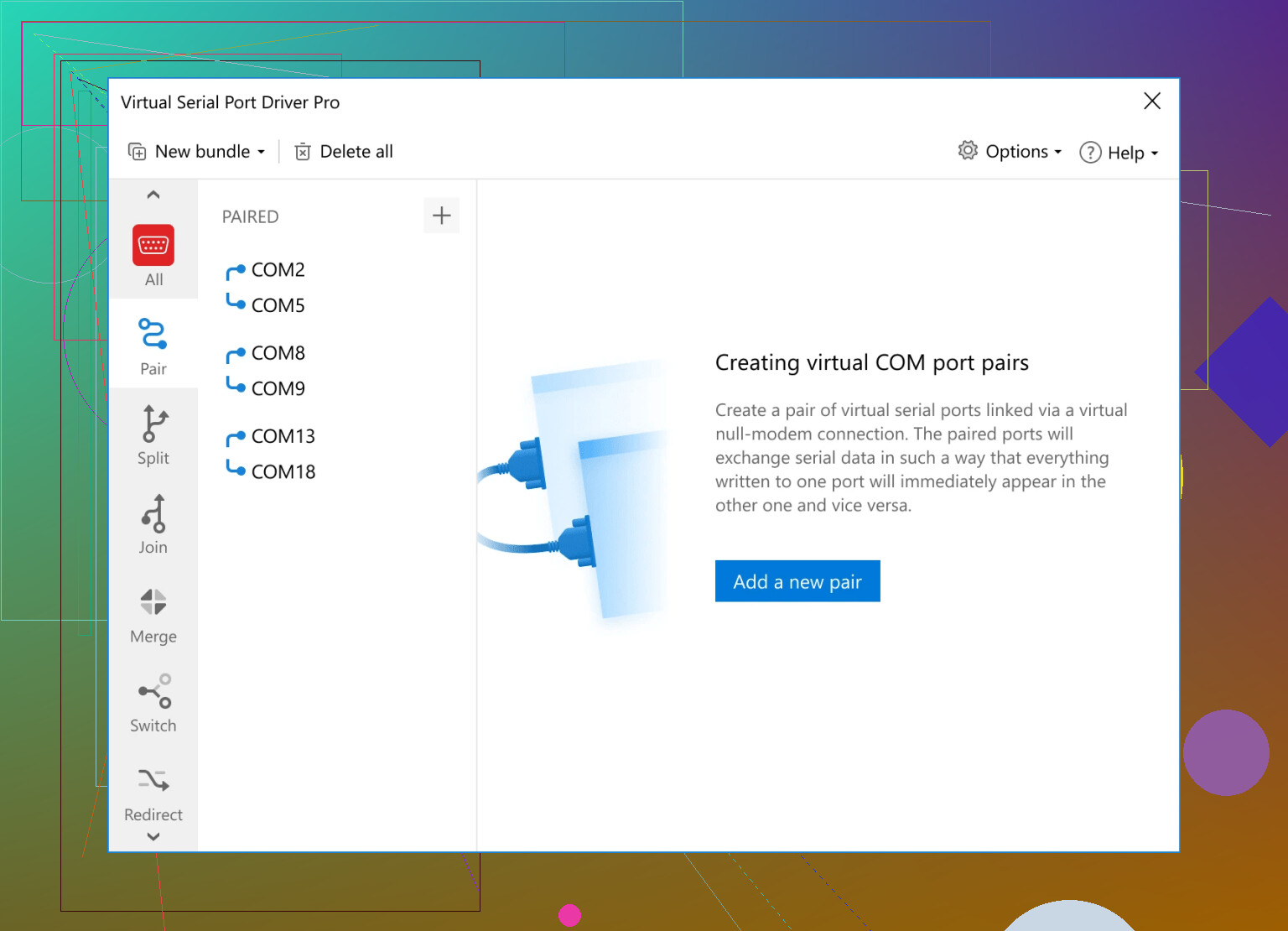I’m having trouble finding a reliable virtual serial ports emulator for some legacy software testing. The options I’ve found either don’t work well with my setup or have limited features. Has anyone found a solid solution that works with Windows 10 or newer? Any suggestions or advice would really help me out.
If you haven’t tried Virtual Serial Port Driver yet, it’s honestly one of the few options that consistently works well. The software lets you create pairs of virtual serial ports that your legacy programs can use as if there were real hardware ports, with advanced settings for baud rates, emulation parameters, and port behavior—actually handles weird handshake and buffer settings, too, which is usually where most cheaper/free tools choke. Setup’s pretty intuitive, doesn’t bog down Windows, plays well on newer OS versions (crucial if your “legacy” means XP in a VM). Plus, it supports unlimited port pairs, which is super handy for heavy-duty testing or simulating multi-device environments. Not free, but worth it if you’re tired of spending your weekends uninstalling sketchy serial port thingies. For more details on how this top-notch serial communication emulator works, check out this resource for advanced virtual COM port emulation. Seriously, it beats rolling the dice on unreliable freeware.
If @viaggiatoresolare’s saga of battling flaky serial port emulators resonates (been there, rebooted that), you’re definitely not alone. However, while Virtual Serial Port Driver is a reliable and robust choice, it’s definitely not the only game in town—especially if you’re after something that balances feature set with cost, or just don’t wanna shell out yet another license fee for testing.
A couple more options to throw in the ring:
- com0com: Open source, pretty popular, works fine most of the time. It can be fiddly with setup (the manual is way more confusing than it should be), and I personally have had weird issues with flow control emulation, especially when trying to get some ancient SCADA software running.
- Virtual Serial Port Drive from Electronic Team: Pretty slimmed-down version of their commercial stuff, so don’t expect a lot of tweaking, but sometimes “simple” is all you need. Depends on your usecase; don’t expect miracles, but it’s worth a quick spin.
That said, for anything heavier than just pushing a few test bytes back and forth, most of the free/cheap tools tap out when you want handshaking manipulation, advanced buffer tuning, or compatibility with whiny legacy apps. I’ll grumble and admit, Virtual Serial Port Driver really does outperform in those situations.
If you’re ready to give the pro-grade approach a shot and stop risking Windows’s patience, you can kick things off by checking out advanced tools for seamless serial port emulation. Honestly, at a certain point, your peace of mind might actually be worth more than the freebie headache.
Free options exist but can get patchy. Virtual Serial Port Driver is pretty bulletproof if you need real reliability.
Let’s cut through the serial chaos with a troubleshooting checklist:
-
com0com: I’ve tried this on both Win7 and 10, and while it’s free and kind of the community darling, its driver signing hoops are a real drag. It’s notorious for flow control mishaps (your legacy software might not handshake right), and if you’re running non-English Windows or recent updates, occasionally things just refuse to install. It gets bonus points for being open-source, but expect zero support and a wiki that assumes you already know COM port black magic.
-
Now, Virtual Serial Port Driver—this is the one everyone in the serious testing trenches swears by (outside the freebie crowd). Pros: near-flawless emulation, custom control over buffering/handshake/baud, “just works” on anything post-XP, and actually gets software updates. Cons? Price tag. You’re forking over cash, so if you’re just doing one-off hobby tinkering, it can feel overkill. But: no circus of unsigned drivers, cryptic registry editing, or random blue screens.
Pro tip: If your application fails with even VSPD, double-check your app’s port enumeration—just because a port is created doesn’t mean your software is scanning the right COM range.
My suggestion—start with your basic needs on a lightweight tool, but if you’re burning real hours on “why isn’t this thing seeing my port?” and legacy-specific protocol woes, Virtual Serial Port Driver saves a mountain of pain. Just weigh the expense against your time and nerves. Oh, and backup your VM snapshots before you install any of them—that’s a lesson I learned the hard way.
